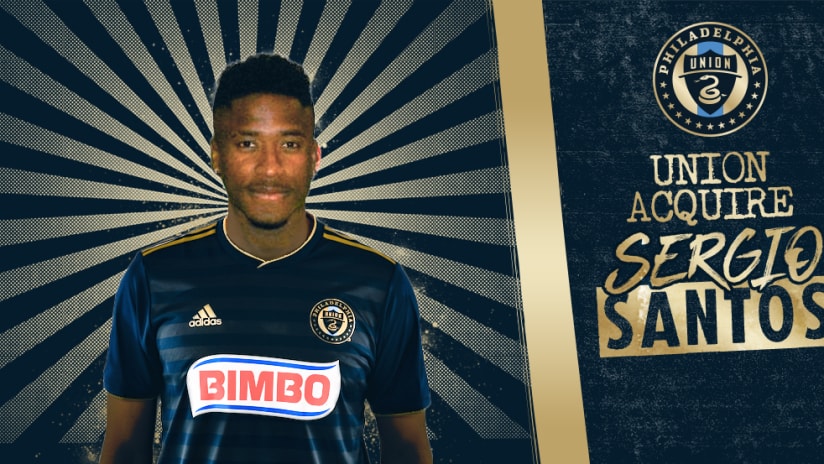Here’s a weird fact: Since Chris Armas took over as head coach of New York Red Bulls, 15 MLS matches have finished 1-0.
Of those, the Red Bulls have won five (the Union have won two over the same period).
So yes, Armas’ Red Bulls side is having success, but they are relying quite heavily on that exceptional defense to do it. Such was the case on Sunday, as Philly controlled large portions of the match but found it difficult to penetrate New York’s box to create the big chances they needed.
Still, there are a lot of positives to take away from Sunday’s loss. Even given New York’s penchant for playing without the ball, it was clear that the Union were the dominant team over the opening exchanges. Red Bulls generally attempt few passes and complete a fairly low percentage, relying on their swarming press as they seek to play in the opponent’s half of the pitch. Philly, though, kept New York to only 57% of passes completed, well below their 69.4% season average. Additionally, New York’s 302 passes attempted was also far below their 449 season average.
This is all to say that for the second time in 2018, Philadelphia Union made a team that almost nobody else can figure out play soccer on the their own terms. While Atlanta United struggles to impose their will on Red Bulls, Philly institutes small but significant changes in how it builds up and moves the ball while still adhering to the principles that have driven their success all season. The results, over 270 minutes in 2018, is a 1-1-1 record against New York, and a real sense that the Union are the one team that the Red Bulls don’t have a clear superiority over among the Eastern Conference playoff clubs.
Speed of play
The important thing to note is that the tweaks Philly makes to how they play don’t take them away from their strengths. The Union have consistently been able to play through teams that don’t put numbers around the ball, and the ability to do this in and around the final third — particularly on the right — has been the serrated edge that helps them break into the opponent’s box.
Against Red Bulls high pressure, the Union use the same quick passing and sharp movements but execute their moves further from goal than normal. This brings requisite risks, of course. New York wants you to pass the ball around your own half because each pass is an opportunity for them to disrupt and break forward through Bradley Wright-Phillips. In fact, each of New York’s chances and half-chances came from creating a turnover in or just outside of the Union’s half. This could be seen as damning the Union’s strategy, but given how often Philly had the ball in these areas and how few chances Red Bulls created, you can view this as the cost of doing business.
Below, you can see how Red Bulls enjoy having everybody in a very constricted part of the field, as they are always prepared to break forward after winning the ball.
A team as good as Red Bulls is always going to create a chance or three, the key is to limit them to that and to make sure BWP isn’t the one on the end of those chances.
About BWP…
As Matt De George tweeted after the match, it’s been a long time since Red Bulls’ star striker was held without a shot.
But there’s more.
In the past three seasons — over the course of 97 appearances and 88 starts — Wright-Phillips has always had at least one touch in the opponent’s box. Until Sunday.
And it’s not like BWP wasn’t involved in play. His 44 touches are tied for his fifth most in a match all season. But he didn’t touch the ball where it mattered most.
Earlier in the year, as Philly’s young center backs went through a murderers’ row of top strikers — BWP, Nikolic, Martinez, Giovinco, Kamara, Diomande, and Zlatan between May 26 and July 21 — the hope was that those experiences would force accelerated growth. Sunday suggests it has. There will still be ups and downs when you are rolling with a combined 39 years in back, but BWP is legend, and legends usually find a way. Shutting down a 100-goal career scorer in a way nobody else has in three years? Impressive.
So impressive that it’s worth taking a brief pause to watch Auston Trusty respectfully toss BWP to the ground. Enjoy.
Bedoya movement key again
Usually, Red Bulls are kings of small spaces. Check out this passage of play from early in the match. Everyone is locked into a small area of the pitch, and New York usually feasts on moments like this. The entire sequence is essentially a transition moment, which means both teams cannot set up any kind of attacking or defensive shape, but must respond instantaneously to changes in possession. It’s incredibly difficult to defend out of such moments, and Red Bulls — across their three clubs — makes a living bursting forth from such phases of play with direct running that catches the opponent in disarray. Philly’s ability to remain focused and prevent these phases from becoming the norm during the match was key to controlling play.
And key to the Union’s success in preventing these chaotic moments was the connections of their three midfielders, and particularly Ale Bedoya’s work creating numerical overloads and forcing New York’s holding midfielders to separate from Kaku and sacrifice a bit of the extreme compactness that they normally retain.
In this first clip, Bedoya pulls wide and that leads Red Bulls to set up with too many numbers on the wing. This opens the center so Haris Medunjanin can play a dangerous ball through to Cory Burke without anybody being there to intercept.
In this second clip, New York has the Union right where they want them, and you can see that Dockal is moments from being closed down when he clips a ball over the top. Bedoya’s quick recognition that his team needed an outlet motivates his vertical run that leads him behind the defense.
In the end, the Union lost to Red Bulls after BWP pushed Ale Bedoya into Cory Burke and referee Ted Unkel spent exactly 10 seconds reviewing the play before deciding the ball hitting Bedoya’s hand as he sought to protect himself was a penalty. On the surface, and given that he hadn’t called a penalty as he stared directly at the play in real-time, it seems like Unkel could have taken more time to sort out what happened amongst BWP, Bedoya, and Burke. But he didn’t, and the Union lost 1-0. That shouldn’t take away from the fact that Philly once again showed they can hang with a top team in the Eastern Conference. As the season rolls to a close, that’s a net positive no matter how you spin it.
Before we move on to NYC, let’s a minute enjoying Mark McKenzie staring down danger and calmly playing through the Red Bulls press over and over.













